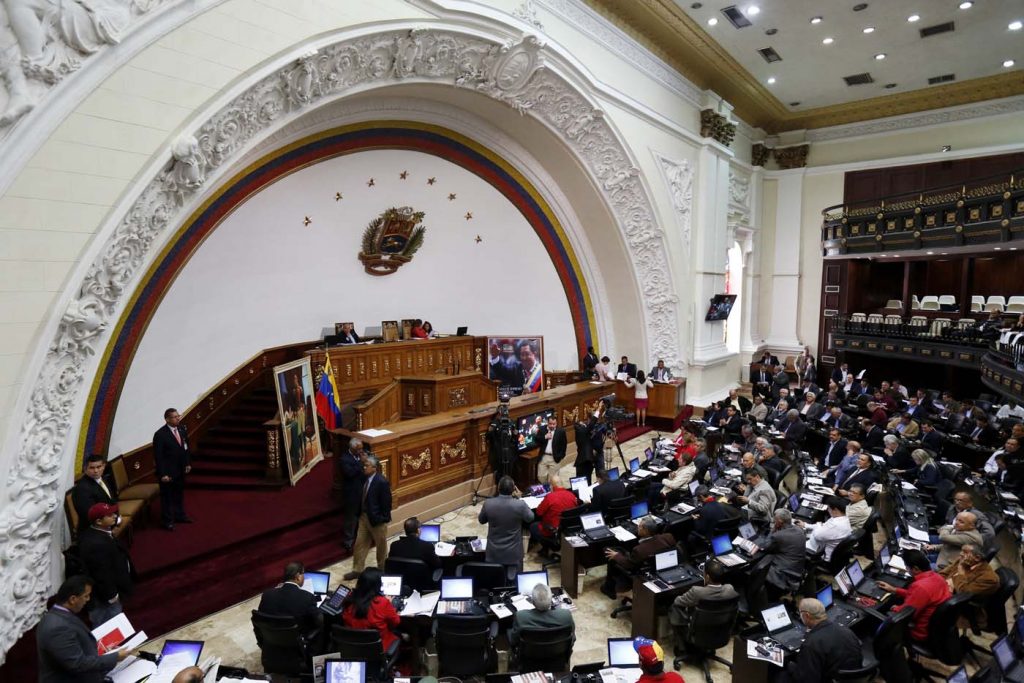The willingness of the Constitutional Chamber of the Supreme Tribunal of Justice to block the National Assembly «as it may» appears to be in the past. At least this is what emerges from the ruling that allowed the Central Bank of Venezuela (BCV) to borrow loans abroad, without the need to have the parliament’s approval, which was not signed by all the Justices that constitute that instance.
Although the judgment 618 was announced as a «joint presentation», as the vast majority of the 18 that the interpreter of the Magna Carta has issued against the Legislative Branch, the fact is that it was not unanimous.
This is revealed by the ruling itself in a small note at the end that says: «The Justice Dr. Carmen Zuleta de Merchán did not sign the present judgment, who did not attended for justified reasons».
Sources from the highest tribunal said that Zuleta refused to endorse the ruling for not agreeing with its content, which in practice allows the BCV to borrow abroad, on the grounds that «enjoys broad autonomy» and although it is subject to the scrutiny of the parliament this «cannot interfere in the operations it carries out», because doing so «would undermine the efficiency of the Bank’s operations, which must be endowed with the flexibility and efficiency derived from the Bank’s autonomy, and of the aims and objectives that it has attributed, widely analyzed previously».
This is the first time that one of the seven Justices does not sign one of the judgments that had subtracted faculties to the National Assembly or overruled some of its decisions by not agreeing with it.
Extract of the Judgment
The plaintiff part claims (…) «That from Wednesday 29 June 2016, the news has been published in social media, printed and digital, that the Central Bank of Venezuela, requested before the Latin American Reserve Fund (FLAR) a loan for a billion dollars (…), as well as: (…) That «according to such notice, the approval of the referred loan ‘implies fulfilling an indispensable requirement: the signing of an agreement of national interest that would have to be approved and subscribed by the National Assembly.» Concluding: “(…) That the central point of the constitutional interpretation recourse brought is to clarify the question as to whether the potential loan contract to be subscribed by the Central Bank of Venezuela with the Latin American Reserve Fund (FLAR) could be considered as a contract of national public interest, and therefore subject to the approval of the National Assembly and requiring the consultation of the Procurator General of the Republic, advisory body of the National Executive; According to articles 150, 187.9, 236.14 and 247 of the Constitution of the Bolivarian Republic of Venezuela, in accordance with articles 318 and following ejusdem that regulate that Issuing Entity. The defendant indicates “(…) The false assertion usually made in reference to that the totality of contracts that imply in some way the nation’s indebtedness as public credit operations may be classified as contracts of public interest, since, on the contrary, this highest tribunal, by way of illustration, has recognized exceptions, and the reference to the financing operations or loan of resources that have been examined have been mainly directed to the execution of works of national interest according to the definition that the Organic Law of the Financial Administration of the Public Sector gives (…)” However, the Chamber proceeds to explain: «(…) Thus, the constitutional mandate contained in the aforementioned provisions (Constitution of 1961), consists of an authorization to be granted by the National Assembly, prior to the celebration of the contract of public interest.», the Chamber adds then: «(…) However, it should be noted that with the entry into force of the 1999 Constitutional Text, it was not indicated the meaning that should be attributed to the notion of contract of national public interest”.
